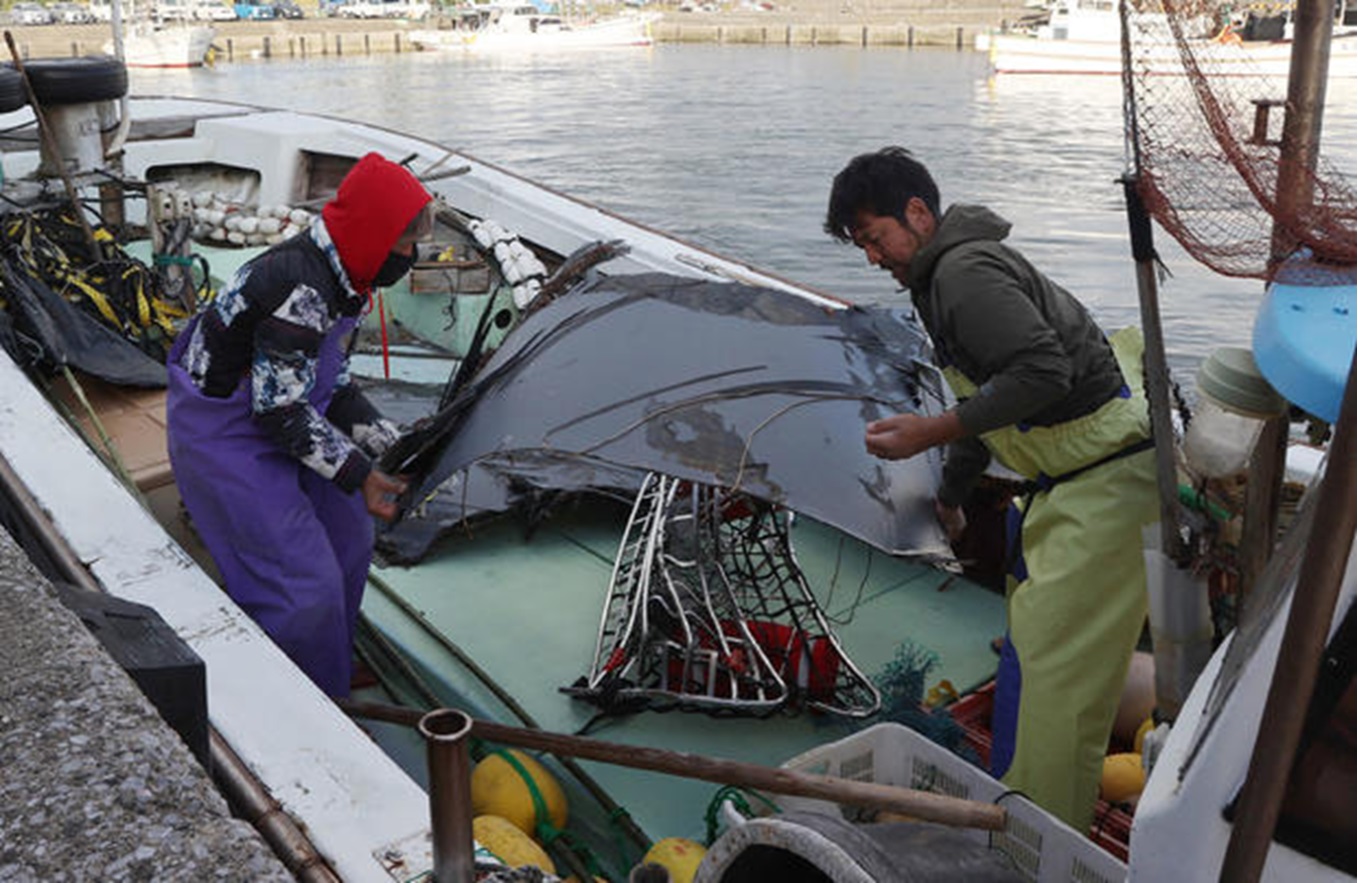
On November 30, 2023, fragments suspected to be from a downed U.S. Air Force CV-22 Osprey were retrieved and brought to the shore at a port in Yakushima-cho, Kagoshima prefecture, Japan.
The entire fleet of Osprey aircraft operated by the U.S. Air Force is being grounded following a fatal crash last week off the coast of Japan, which resulted in the tragic deaths of all eight U.S. airmen on board. The decision to ground the fleet was announced on Wednesday, with Lt. Gen. Tony Bauernfeind, the commander of Air Force Special Operations Command, stating that the move was prompted by a preliminary investigation pointing to a potential equipment malfunction as the cause of the crash.
The grounding, referred to as an "operational standdown," is aimed at allowing a comprehensive investigation into the incident to determine the exact factors that led to the crash. The focus of the inquiry will be on identifying any material failures that may have occurred. While the announcement acknowledges the preliminary nature of the investigation, the exact details surrounding the equipment malfunction remain undisclosed.
The crash occurred during a training flight on November 29, involving an Osprey assigned to Yokota Air Base in Tokyo. The aircraft had departed from Marine Corps Air Station Iwakuni and was en route to Kadena Air Base on Okinawa when it requested an emergency landing on the southern Japanese island of Yakushima. Eyewitnesses reported the aircraft flipping over, catching fire, and subsequently plunging into the ocean.
In response to the incident, the Japanese government formally requested the U.S. military to ground its Ospreys in Japan until thorough safety inspections could be conducted. The grounding decision aligns with this request and aims to ensure the safety of these aircraft during further investigations.
As of now, the remains of three out of the eight crew members have been recovered, while the remaining five are still inside the submerged wreckage, located off the coast of Yakushima. The search and recovery efforts involve divers from both the U.S. and Japanese militaries.
This tragic incident adds to a series of fatal Osprey crashes in recent years, raising concerns about the safety of these aircraft. The Osprey, a tiltrotor aircraft with the capability to take off and land like a helicopter while also flying like a plane, plays a crucial role in troop and supply movements.
Contributions to this report were made by Lucy Craft, Tucker Reals, and Elizabeth Palmer. The decision to ground the Osprey fleet underscores the seriousness of the situation, emphasizing the need for a thorough investigation to address safety concerns and prevent similar incidents in the future.















